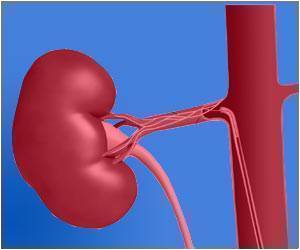The complex subject of gun violence and critical gaps in research will be tackled by pediatric leaders and researchers

"We must continue to raise awareness about the public health and social consequences of firearm injury in children," said symposium co-chair Barbara J. Stoll, chair of the department of pediatrics at Emory University School of Medicine in Atlanta. "We hope to focus the discussion on up-to-date evidence, rather than politics or personal opinion, and to identify gaps in knowledge and build the case for expanded research.
"Firearm injury has not gone away. We must address the tragedy of these preventable injuries and deaths," Dr. Stoll said.
An estimated 20,600 youth ages 1 to 24 sustain firearm injuries annually, and 6,570 die. Firearm injuries cause twice as many deaths as cancer, 5 times as many as heart disease and 20 times as many as infections in this age group. In 2013, President Obama lifted a congressionally imposed ban on firearm injury research and called for new funding, but significant gaps remain in the evidence due to historical research barriers.
New research is critical to understand epidemiology and risk factors, firearms and self-defense, preventable accidental injury and suicide, and the effectiveness of office-based counseling programs.
The symposium will be held from 8 to 10 a.m. in the Vancouver Convention Center. Topics and presenters include:
Advertisement
- "Epidemiology of Firearm Injury and Death in Children and Youth-- What are the Risk Factors?," presented by M. Denise Dowd, MD, FAAP, Children's Mercy Hospitals and Clinics, Kansas City, Mo.
- "Gun Availability: Protective or Perilous," presented by Douglas Wiebe, PhD, University of Pennsylvania, Philadelphia, Penn.
- "Suicide and Accidental Firearm Injuries," presented by Matthew Miller, MD, MPH, ScD, Harvard School of Public Health, Boston, Mass.
- "Talking About Guns with Patients: Evaluating Counseling Strategies," presented by Robert Sege, MD, FAAP, Boston University/Boston Medical Center, Boston, Mass.
"There are several examples of major improvements in public health for children such as tobacco use, lead poisoning and automotive injury, which have depended on high quality research over many years to provide the evidence needed for sensible and effective policy change," said plenary co-chair David Jaffe, MD, director of the Division of Emergency Medicine in the Department of Pediatrics at Washington University School of Medicine in St. Louis. "We believe that the same public health research principles apply to addressing firearm injuries to children."
Advertisement









